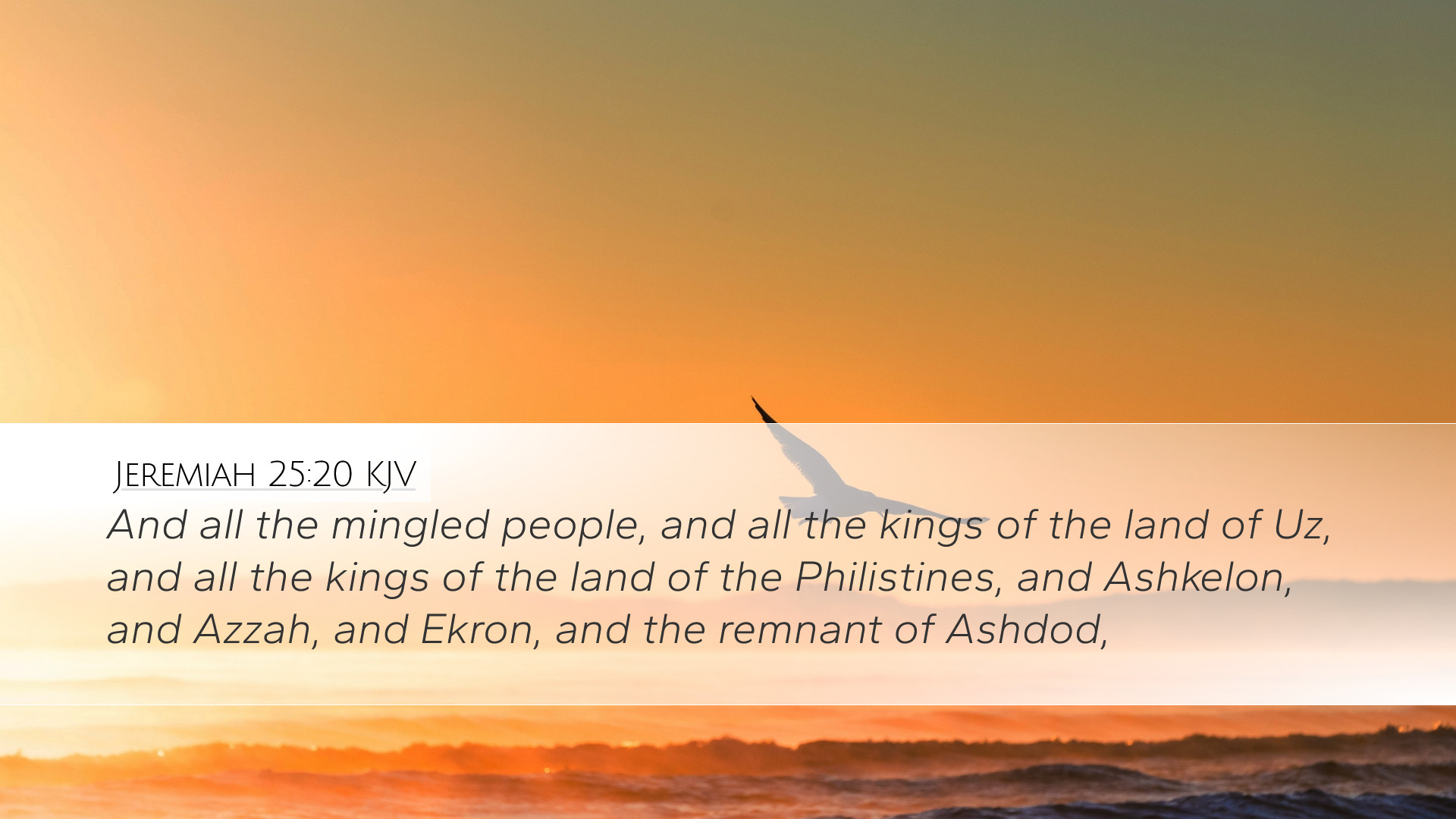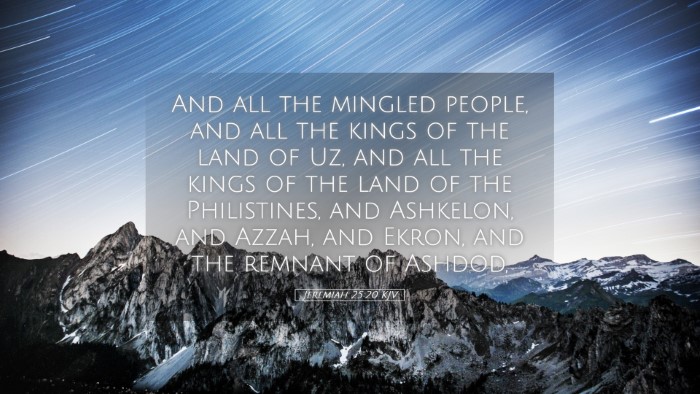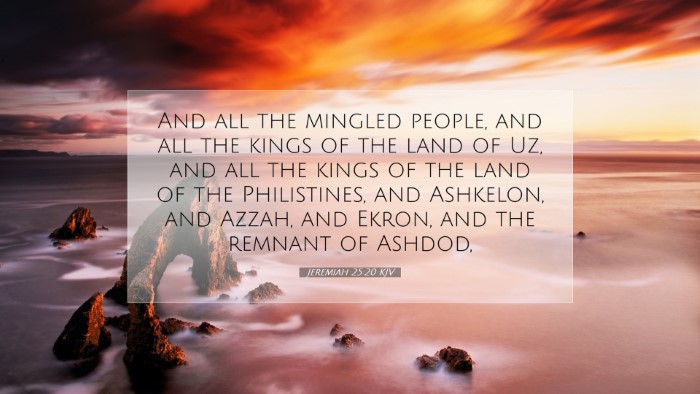Commentary on Jeremiah 25:20
Verse Context: Jeremiah 25:20 states, "And all the mingled people, and all the kings of the land of Uz, and all the kings of the land of the Philistines, and Ashkelon, and Azzah, and Ekron; and the remnant of Ashdod." This verse is part of a larger prophetic message delivered by Jeremiah concerning the coming judgment on various nations.
General Insights
The significance of this verse lies in its mention of multiple nations and peoples that were to be included in God's judgment. Jeremiah presents a panoramic view of those affected by divine wrath. This serves as a crucial aspect in understanding the prophetic literature—focusing not only on Israel but also on neighboring nations.
Insights from Public Domain Commentaries
Matthew Henry's Commentary
Scope of Judgment: Matthew Henry emphasizes that the consistency of God's character requires Him to judge not only Israel but also the surrounding nations due to their transgressions. The "mingled people” refers to a mixture of nationalities and traditions, indicating a lack of purity in worship and morality. Henry asserts that God’s judgment is impartial and encompasses all nations, not just His chosen people.
The Land of Uz: Henry identifies the land of Uz as a region associated with Job. The presence of this land in the list underscores that even righteous nations are not exempt from divine justice. The moral implications suggest that if even the most celebrated of nations (like Uz) faced judgment, none should take their standing with God lightly.
Albert Barnes' Notes on the Bible
Historical Context: Albert Barnes provides a historical backdrop to the events listed in this verse, noting that during Jeremiah's time, there was a significant geopolitical landscape involving the Philistines and Edomites. These nations, often adversaries of Israel, symbolize those who reject God’s authority. Barnes interprets this as a warning to nations that turn from God's ways, highlighting that their downfall is inevitable.
Significance of Ashdod: Barnes notes the mention of Ashdod, a significant Philistine city. Its inclusion in this prophecy signifies the extent of God’s judgment reaching to the heart of Philistine power. This not only served as a message to Israel about their need for repentance but also spurred a realization that God’s sovereignty prevails over all nations.
Adam Clarke's Commentary
Interpretation of the "Mingled People": Adam Clarke elaborates on the term "mingled people," suggesting it refers to a composite of different ethnic groups that had settled together. Clarke argues that this represents spiritual confusion arising from mixing various cultic practices, thus drawing God's ire. He underscores that such amalgamations are often contrary to God’s demands for covenantal fidelity.
Theological Implications: Clarke stresses that the passage serves as a reminder of God's justice in punishing sin wherever it is found, reinforcing the doctrine of collective accountability among nations. He insists that this reflects the universal nature of God’s justice and judgment, compelling believers today to remain vigilant in the face of cultural dilution of faith.
Collective Reflections
The combination of insights from these esteemed scholars emphasizes several key themes:
- God’s Impartial Judgment: All nations, regardless of their history, are accountable before God.
- Cultural and Moral Integrity: The dangers of spiritual compromise are significant and should not be underestimated.
- Universal Sovereignty of God: The inclusion of different nations showcases that God's authority extends beyond Israel, challenging any notion of exclusivity in His justice.
- Call to Repentance: The prophetic voice calls for reflection and repentance, not only for Israel but also for the world at large.
Application for Modern Readers
As pastors, students, theologians, and Bible scholars engage with Jeremiah 25:20, the implications remain profound. It serves as a critical reminder that:
- God’s judgment is not limited by geographical or political borders; every individual, community, and nation are under His authority.
- Understanding the historical context enhances our application today, reminding us of the beliefs and practices that may dilute our faith.
- It emphasizes the need for a steadfast commitment to purity in doctrine and practice, warning against the dangers of cultural syncretism.
- This passage invites a humble self-reflection within communities—considering how they align with God’s expectations and whether they need to repent collectively.
In summary, Jeremiah 25:20, when explored through the lens of established biblical commentators, offers a rich tapestry of theological reflections pertinent for today's believers. The call to recognize God's impending judgment urges contemporary audiences to foster a robust faith that withstands the tests of time and culture.


